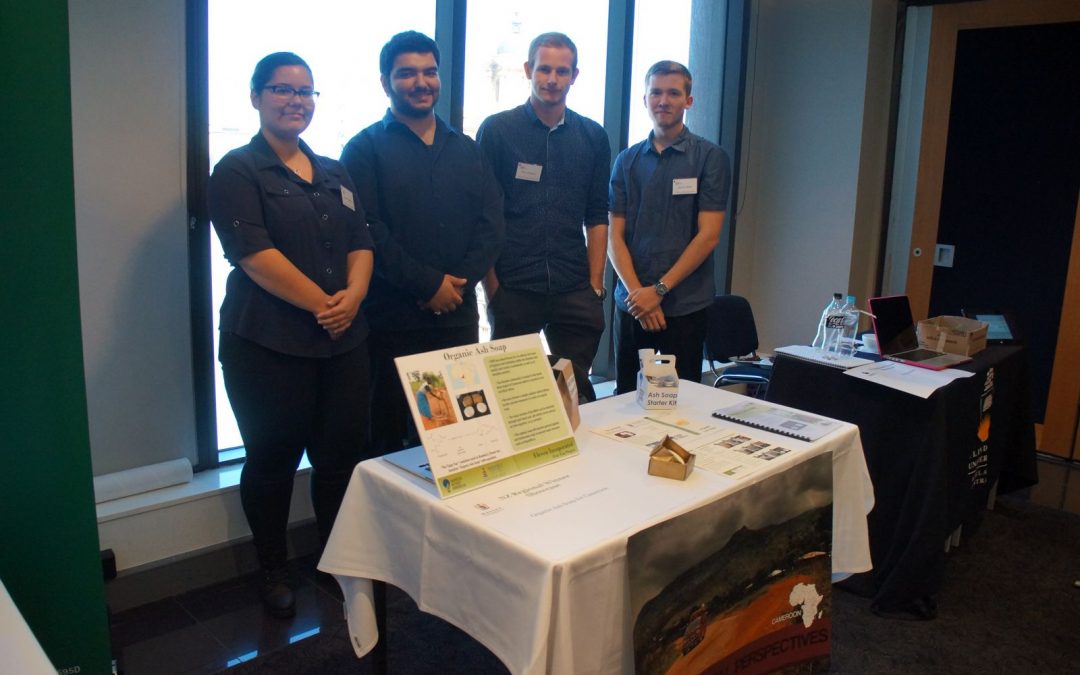Using the EWB Challenge to program to create global citizens by introducing them to humanitarian engineering.
Imagine you have just finished high school, started first-year university and signed up for the EWB Challenge. Despite the fact you were at school only a few months ago, you and your fellow Challenge team members are expected to generate ideas for real world problems; ideas that can make a tangible difference to people living in some of the least developed countries in the world.
“This,” EWB Australia’s Director, Education and Research Jenny Turner explains, “Is what makes the Challenge really great for students. Usually they have to wait until they have finished their first degree to work on real world projects. It gives them an opportunity for their ideas to have a big impact on the world.”
The Challenge is designed to introduce first-year university students to humanitarian engineering as they work in teams to generate creative solutions for inspiring, sustainable, cross-cultural development projects.
Dr. Enda Crossin, a Senior Lecturer at RMIT University finds, “The students love the team-work aspects of the EWB Challenge, particularly the opportunity to work in cross-disciplinary and cross-cultural teams. Students also love the potential for their projects to be implemented in real life.”
“The Challenge improves the richness of the student experience, fits well with our focus on project-based learning and serves as a solid foundation for future coursework, including courses in design, project management, research andsustainability.”
Each year new project briefs are developed in consultation with EWB’s community-based partner organisations and participating communities. The briefs are designed to challenge students to use their technical knowledge, problem-solving skills and understanding of the demographic, economic and social realities of communities to design sustainable engineering solutions.
Bringing students into contact with people who live very differently promotes empathy and highlights our ability to help each other in our increasingly interconnected world.
“Humanitarian engineering uses a people-centred approach to improve health, well being and opportunity,” explains Jenny, “We introduce students to these concepts by developing briefs for real-world challenges where the context and user needs are critical to creating appropriate, usable ideas.”
To date, the EWB Challenge program has partnered with organisations in Cameroon, Nepal, Timor-Leste, Vietnam, India and Cambodia. This year, students are working on projects developed by the United Nations High Commissioner for Refugees (UNHCR) Zambia, its implementing partners, and the community of the Mayukwayukwa Refugee Settlement.
Jenny says “The partnership with the UNHCR is taking us into exciting, new territory. It’s the first time we have been able to work at the intersection of humanitarian response and long-term development.”
“We want to open students’ eyes to the role engineers can play in the global community and instil a sense of responsibility to use those skills as a global citizen. It’s inspiring for everyone involved in the EWB Challenge Zambia that any useful ideas generated by the students will be shared with other UNHCR field operations and might be used around the world.”
Timothy Sakala, Livelihoods Officer, Kaoma Field Office, UNHCR Zambia is looking forward to receiving ideas from the 2016 EWB Challenge participants.
“When looking at some of the previous student reports, what amazes me is the quality of thinking that students put into their designs. They marry the technology with the human and social component of the community. This is very striking and gives me hope that when we receive the student reports for the UNHCR Zambia Challenge, we will have solutions that are appropriate to us.”
Students sitting at home in Australia or New Zealand might not be aware how much someone on the other side of the world is anticipating their ideas, or how they are helping EWB transform the entire engineering sector so that every engineer has the skills, knowledge, experience and motivation to contribute tosustainable community development and poverty alleviation.
The 2016 EWB Challenge is partnered with the UNHCR and their work in the Mayukwayukwa Refugee Settlement in Zambia.


